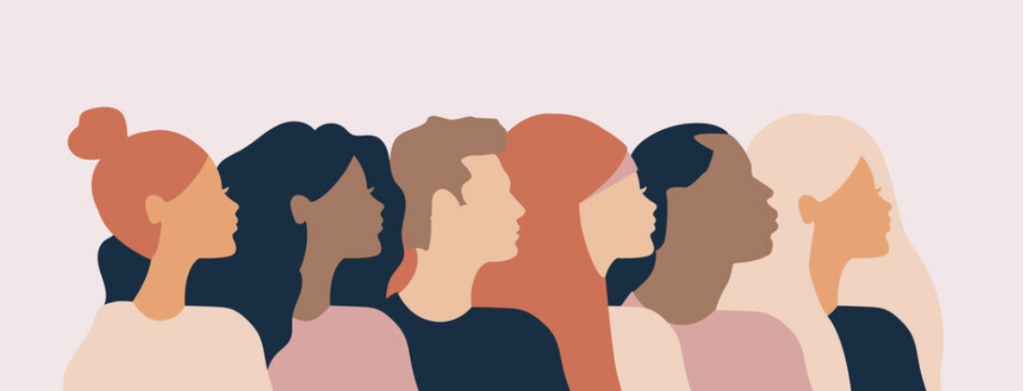Why Should We Care About Women In Theatre
by: Priscilla Wilson, ITJA participant

As we all gathered this week for the very first time Tuesday night for the 56th Annual Kennedy Center American College Theatre Festival, I was unsure what to expect at my very first theatre festival. Piling into the seats of the Albany Municipal Auditorium, we were immediately met with the faces of the staff who would guide us all week. Big names with long resumes, and long titles, but all connected by the fact that all their different paths had led them here. Their path paved the way for us to even be sitting here as students.
And as we sat and listened, enjoying the first of many invited productions of the week, I couldn’t help being reminded of my own story, and the path I have walked thus far in my short career. Every moment where I have felt small in comparison to my male identifying peers. Every moment I felt powerless in a room where I was meant to be in charge. Every time I’ve been spoken over, explained to, overly critiqued, etc.
As these big names were announced to me, and staff awards were handed out, I couldn’t help but wonder if these women were like me and sat in these same rooms before. If they had ever felt small, if they had ever felt powerless. Like their words held less weight than their male counterparts. Even if they did, here they stood in front of me now, despite the struggle. So I decided to seek them out, and hear some of their stories on their own terms. This week at KCACTF, I was able to meet with both Lisa Abott, current professor of Acting, Directing, and Playwriting at Georgia Southern University, and the Immediate Past Chair of Region IV, as well as Katherine LeRoy-Lawson, a professor of Theatre at South Georgia State College, and our Region’s RED Chair.
As I spoke with these two astounding women, I began with one ultimate question: Why should society care about this? About the daily struggle of being a woman in this field?
Speaking with Lisa, I was able to receive some wonderful insight into what it was like trying to come into the world of directing as a young student.
LISA: When I was in my senior year of college? And I pitched my senior directing proposal, my directing professor[…]said “Well, we’ll let you do the show, but you know you’ll never be able to direct.” I said “Well why is that?” And he said, “ Women can’t direct.” And I said “Really?” And then he added insult to injury, “And you don’t have the artistic background, because your family is a bunch of hicks.”
Upon hearing this, I couldn’t help thinking of how this must have been only a few short years ago. A few short years ago where a theater professor sat and told one of his young directors that she couldn’t direct.
LISA: And yeah, I’ve had people walk up to the room and walk up to my male stage manager, and ask him. They’re like, “We’re here for the interview with the director […] you’re L. Abott.” And he was like, “No, that would be her.”
After several similar stories were told to me by Lisa, I was able to hear some more of her insight in how she has dealt with this personally.
LISA: Navigating it in a way that’s not so overtly aggressive, because that apparently scares people. And I laugh at that, it’s like, so aggression in a woman is aggression and b*tchiness, and from a man it’s leadership.
As we closed out, I was able to ask Lisa why she felt feminism was important still, and relevant still.
LISA: […] theatre teaches us how to be human. So we need to be telling the stories of women, we need to allow women to tell our stories, but also everyone else’s stories.
Later on in the festival, I was able to speak with Katherine Le-Roy Lawson, whose different approach and perspective were sobering to hear.
KATHERINE: I’ve been at this a long time, so I’m sure that as I’ve grown older, my eyes see things through different light […] I do know that there are still challenges that are around, and there are challenges I faced as far as being the only person of color in the room sometimes.
Hearing this different outlook, I further heard Katherine elaborate on specific parts of her own experience.
KATHERINE: There was a time where I was cast as a peasant, and I was like, “I don’t think this is a good use of my time, or my talent, or energy,” and the person who did the casting did not understand at the time. And has since spoken to me later and apologized, and we are like some of the best of friends now.
Katherine continued to speak further on her experience as a black actress and her struggle with costumers.
KATHERINE: Other challenges for me as a black woman always is my hair, what do we do with your hair? […] There’s always this issue of what do we do? And I feel like it should be taught, that if this is something you’re going into, this is something you should look into for all different hair types.
Towards the end of our interview, he spoke on the progression during her own career and if she thought there was still room for progress.
KATHERINE: There’s always things that could be worked on […] but I do feel like there’s been progression in a sense […] If we had to do a love scene, nobody thought to say “Oh let’s be careful, let’s be sure that you’re okay being touched.”
After speaking to these two women, and my week at KCACTF came to a close, I felt I had found an answer to my titular question. You should care about the struggle of women in theatre because women in theatre are women in this world. The struggle of these women is the struggle of women everywhere. Life imitates art; if we create safe spaces for women’s stories to be told, for them to tell new stories, to create, then we are creating space for females as a whole. This is why you should care, why I should care, why this is still important.
And if you are a woman, or female-identifying, and you’re reading this article, I’d like to leave you with a piece of advice from our own, Katherine LeRoy-Lawson.
KATHERINE: Don’t apologize for who you are. Be who you are, stand ten toes down on it, and if it something that makes you uncomfortable, then you must say it. If that voice of being brave is not right there and not quite developed, then you find someone who can advocate for you […], but do not allow yourself in any way to be subject to things that make you feel less of who you are.






